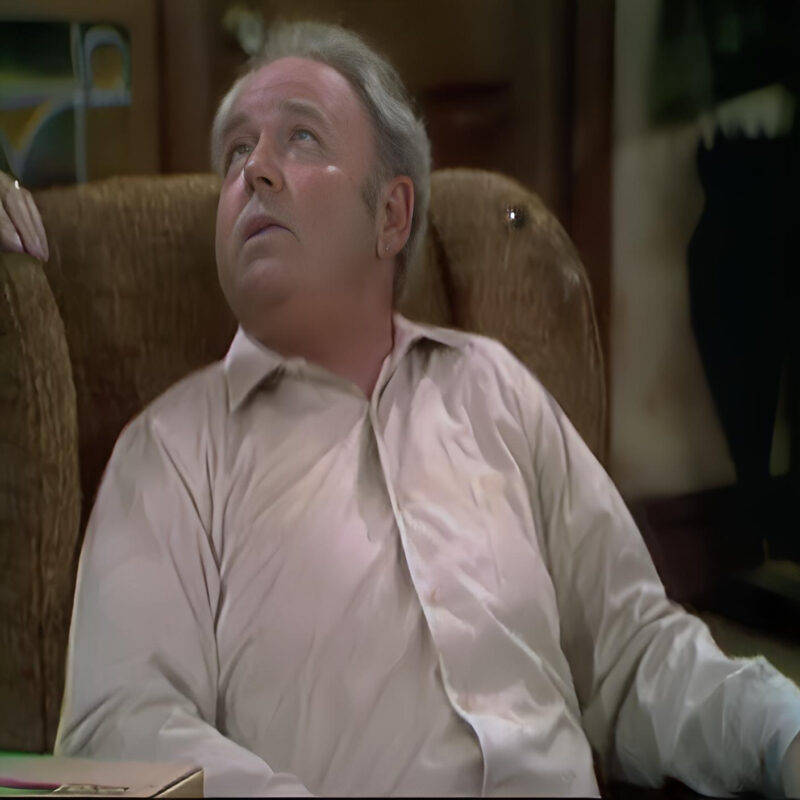
When Carroll O’Connor stepped into the shoes of Archie Bunker on All in the Family, show creator Norman Lear couldn’t have foreseen that O’Connor’s own stubbornness would rival that of his character. Yet, O’Connor’s tenacity not only challenged Lear but also affected the show’s writers, creating a dynamic that was as fraught as it was productive.
O’Connor’s Bold Rewrite of the Pilot Episode
In a 1999 interview with the Television Academy Foundation, O’Connor recounted his audacious decision to rewrite the entire pilot episode of the sitcom. Finding the original script “terrible,” he took it upon himself to pen a new version. O’Connor’s conviction was so strong that he warned Lear he could find another actor if he didn’t like the new script.
Lacking a typist, O’Connor recorded himself reading all the characters’ lines. “I rewrote the script all in pencil,” he explained. “I had no typist so I recorded the entire script on a tape, playing all the parts. Edith, the Meathead, Archie of course, the Black kid from next door. I brought that tape and I gave it to Norman. He put it on a machine and played the tape. It was a complete rewrite. He gave the tape to his secretary and said, ‘Transcribe this,’ she made a script out of it, and that’s the script we did.”
Lear’s Initial Joy and Subsequent Challenges
Norman Lear, in his 2014 memoir Even This I Get to Experience, described his initial euphoria upon finding O’Connor for the role of Archie Bunker. He wanted to “run into the street shouting for joy.” This joy, however, quickly gave way to the realization of O’Connor’s highly collaborative—and often combative—nature.
After offering O’Connor the role, Lear recounted that the actor returned two days later with substantial rewrites of the script. “He’d ‘done a little work on it,’ he said, and hoped I liked it. Actually, he had rewritten the first act entirely, the second act to come. And now, I had the first of hundreds of difficult moments with Carroll O’Connor, many of them extremely difficult on both sides. At times, they were murderously difficult.”
Respect Amidst Conflict
Despite their frequent clashes, Lear and O’Connor developed a deep mutual respect. Lear acknowledged O’Connor’s habit of disliking every script initially, attributing it to the actor’s fear and defensive anger. However, Lear also recognized O’Connor’s immense talent, stating, “As difficult and often abusive as Carroll could be, his Archie made up for it and I could kiss his feet after every performance.”
When O’Connor passed away in 2001, Lear visited his widow, Nancy. She led him to O’Connor’s office, where a letter from Lear to O’Connor was prominently displayed on the desk. The letter, written on O’Connor’s birthday, expressed Lear’s deep respect and love for the character O’Connor had brought to life.
“In [the letter], I’d explained how, despite our constant disagreements, I so deeply respected him as a talent and so loved the character he created for the character I’d created,” Lear wrote. “Nancy allowed me to read my letter and stood by as I cried. She told me that Carroll had put it on his desk the day it arrived years earlier. And it was there in the same place the day he died.”
This poignant moment underscored the profound, if turbulent, connection between Lear and O’Connor, a collaboration that ultimately shaped one of television’s most iconic characters and enduring legacies.
